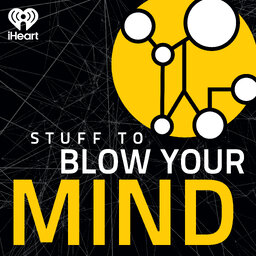Isolation Chambers: Float Follow-Up
Isolation Chambers: Float Follow-Up: In a previous episode, Robert and Julie discussed the science of sensory deprivation chambers and now they're back from their own first-hand experiences inside the womb-to-tomb wet box.
Learn more about your ad-choices at https://www.iheartpodcastnetwork.com
In 1 playlist(s)
Stuff To Blow Your Mind
Deep in the back of your mind, you’ve always had the feeling that there’s something strange about re…Social links
Follow podcast
Recent clips

The Monstrefact: Marvel’s Squirrel Girl
04:27

Crab Bag, Part 1: The Crabs are Back In Town
54:40

Weirdhouse Cinema Rewind: The Telephone Box
1:19:53
 Stuff To Blow Your Mind
Stuff To Blow Your Mind